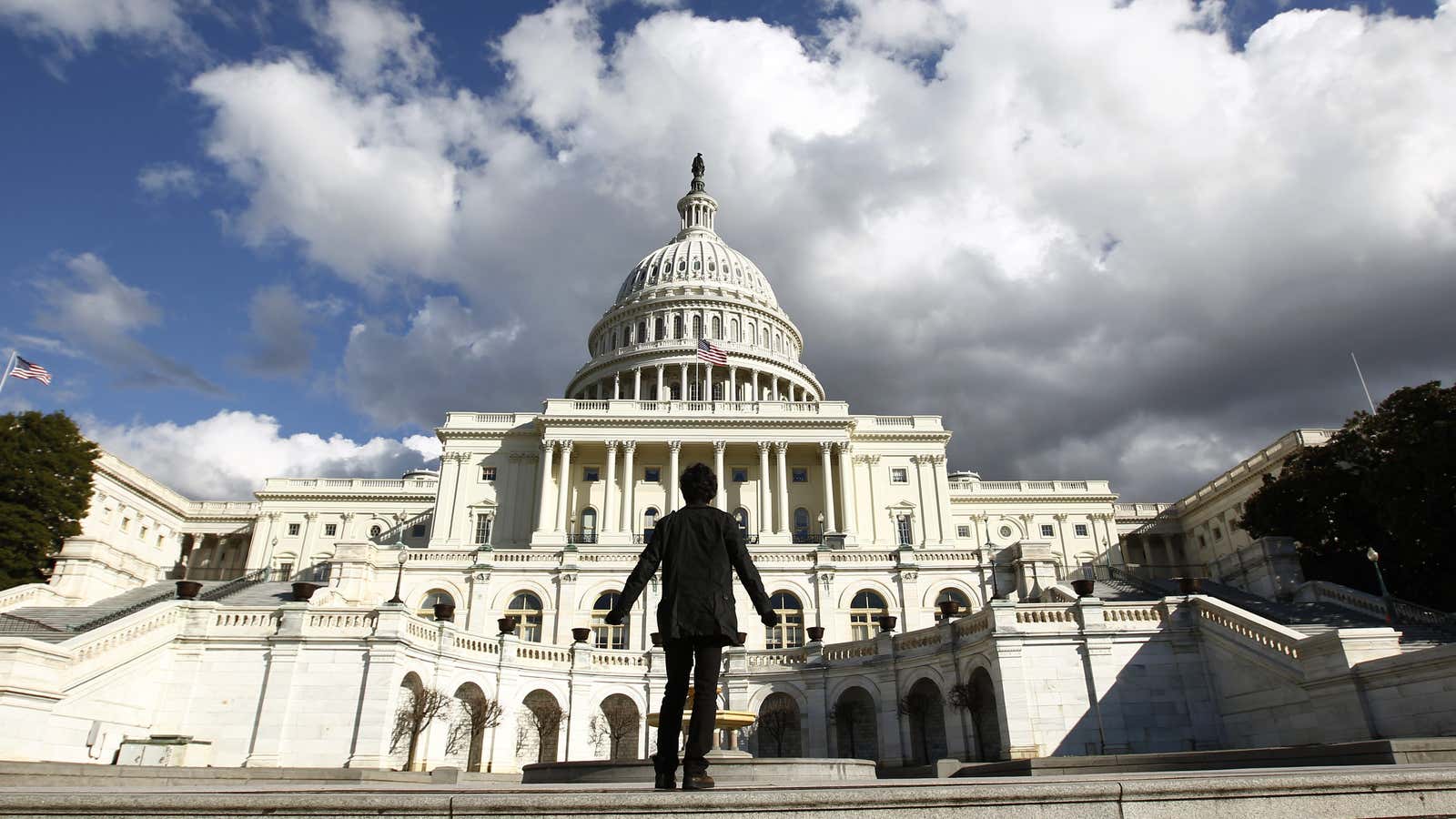The internet is fuming over this week’s Republican-led vote in US Congress to repeal Internet privacy protections carried over from the Obama administration’s final days. Angered internet users are rallying behind Max Temkin, creator of the ”Cards Against Humanity” card game, who retaliated on Twitter by threatening to buy and publish the web browsing history of members of Congress.
Before the vote on Tuesday (March 28), which would allow internet service providers to sell customer data without obtaining consent, Temkin announced his plans on Twitter.
https://twitter.com/MaxTemkin/status/846437803164684290
For better or worse, the pledge rocketed to the top of Reddit. ”The amount of attention this is getting is honestly starting to scare me,” he wrote on Reddit.
Temkin points out that since the bill hasn’t even been signed in to law by the president yet, people interested in privacy issues should instead donate to the non-profit Electronic Frontier Foundation. His company is matching up to $10,000 in donations today.
Twitter and Reddit users have pointed out that it probably won’t be as simple as handing over a list of names of lawmakers and getting their browsing histories back in return. Temkin, acknowledging this, noted in a Reddit post that “this may take a long time.” He writes that Freedom of Information requests may be needed to fill in missing information; the data handed over may be for an entire ZIP code and not for an individual; and a lot of statistical work may have to go into linking the browsing data with specific congressmen.
This raises an ironic point. The difficulties Temkin describes in linking browsing history to individuals confound his own argument. If congressmen wouldn’t be easily identifiable under the new rules, neither would individuals. As long as ISPs anonymize and group customer data together based on broad categories like ZIP codes, picking out individuals from those data sets will require a lot of work.
